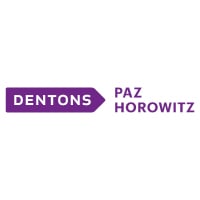

Legal and compliance and corporate affairs director | Holcim



María Gabriela Jijón Chiriboga
Legal and compliance and corporate affairs director | Holcim
What are the projects that you are most proud of working on over the past 12 months?
Our strategy is highly oriented to grow above market, ensuring our leadership position, and protect our margins, diversifying our portfolio and leading decarbonisation in the construction industry.
Within our Country Vision we are focused in three main aspects:
1. Growth & Expand: by ensuring decarbonisation of our operations and accelerating growth of our green solutions. I am currently working together with other colleagues on interesting and challenging projects such as Calcined Clay, Foster Total Shareholder Return with Municipal Solid Waste, Construction Demolition Material Introduction and Power Purchase Agreements.
2. Performance & Innovation: We are looking forward to expanding our aggregates footprint, especially in cities where we have a strong presence in ready mix. Invest in bold – on acquisitions and developing other products and services.
3. Sustainability: We are currently focusing on green operations by participating in projects such as Green Mobility, Calcined and Fresh Water Reduction and double impact community projects (People & Nature), generating synergies with other companies that share the same purpose.
How do you approach managing legal aspects during periods of instability or crisis to ensure the organisation’s resilience?
Managing legal aspects during periods of legal, political and economic instability is critical in order to ensure an organisation’s resilience. The role of a general counsel in these times is even more important by helping the business minimise risks and ensure continuity. One of our main goals in order to manage legal aspects during periods of instability or crisis is having an effective Compliance Policy in place. This procedure is structured into five elements:
Risk Assessment. The compliance program is based on a review of the risks present in the business. The compliance risk assessment enables the development of controls that target and mitigate the identified and assessed risks.
Controls. Controls include the policies, directives, entity level and transactional internal controls, guidance and advice to the business through which mitigation measures are structured and implemented.
Training and Communication. The implementation of controls and the recognition of risks require that the compliance function communicates and trains employees. Such communication and training are developed and delivered on a risk basis across the group.
Monitoring and Follow-up. The conduct of risk assessments, the implementation of controls, and the delivery of training and communication is monitored and reported to the first line management, executive management and the governing bodies of the group. There is provision for an alert system, warning of possible breaches in the code of business conduct, laws and regulations, an investigation capability, ongoing functional review of the performance of the compliance program in specific geographies, internal audit and continuous improvement.
Organisation and Governance. The group assigns roles and responsibilities sufficient to support the requirements of the compliance program and provide oversight of such resources through the governance of the Ethics, Integrity and Risk Committee.
What do you think are the most important attributes for a modern in-house counsel to possess?
Based on my experience, within the most important attributes an in-house counsel needs are the following:
Business acumen, understanding and being part of the company’s goals, vision and mission is crucial. Being an active strategic business partner and delivering results, rather than just focusing on mitigating risks, makes a clear difference. By understanding the business, an in-house counsel can make intelligent risk decisions to support the operation in achieving high and challenging objectives.
Another key aspect that an in-house counsel must have is communication skills. The ability to explain complex legal issues to business stakeholders is essential, being part of the solution rather than just informing the business.
Having negotiation skills and, with these, soft skills play a decisive role. Strong negotiations skills are crucial in order to obtain the company’s needs and, at the same time, maintain good relationships with external parties.
Leadership, being part of the team that participated in the strategy development. Playing an active role, engaging in key decisions early on.
Finally, learning on the fly, resilience, adaptability and agility make the difference. In an environment where there is constant legal and political instability, an in-house counsel needs to inform its stakeholders daily of the laws and regulations that could potentially affect the business and adapt its strategies to align and shift the business needs to the clients and market conditions. Always be one step ahead.
How can general counsel foster a corporate culture that supports ESG principles and compliance across all levels of the organization?
One of the most important pivotal roles an in-house counsel has is to encourage a culture that promotes environmental, social and governance (ESG) principles and compliance across the whole organisation. This ensures the reputation of the organisation, which is one of the most valuable assets a company has. A strong reputation fosters trust among customers, employees, investors and other stakeholders. In order to do so, there are certain aspects that need to be contemplated:
Tone from the top. In order to demonstrate the importance that ESG and compliance has in the organisation, the country manager and the executive team should actively support and participate in all initiatives and lead by example
Set clear ESG and Compliance Policies. Establish clear policies that demonstrate the commitment of the company to internal and external stakeholders and that include not only ESG and compliance principles, but also sustainability, diversity, inclusion and ethical business practices. Zero tolerance is required: zero-tolerance policies help organisations avoid compliance breaches by setting clear, enforceable boundaries.
Promote an integrity line that is 100% anonymous and that is managed by the group compliance team worldwide. This system guarantees transparency, credibility and accountability in the company’s performance.
Training is a key element in order to raise awareness of ESG and compliance policies and opens a direct communication channel with the legal team, making it accessible if stakeholders have any inquiries. It also ensures that employees understand the policies and the role they play and are considered ambassadors of the compliance culture. It is important that all business units are part of this culture – not just the legal team. The legal team should not be seen as police, but rather as a key stakeholder of the business, and participate from day one in all business strategies and projects.
Track and set Key Performance Indicators (KPIs) in order to define metrics and use this data to inform decisions that align with the company’s strategy and are part of the risk management dashboard.